BESTFIT issue 17 – News
Share
 what better way to raise the funds needed for a good cause than by joining in on some of the country’s toughest challenges…
what better way to raise the funds needed for a good cause than by joining in on some of the country’s toughest challenges…
…that’s exactly what former Emmerdale actor Kurtis Stacey and local Liverpool writer Dale Roberts have decided to do for the James Bulger Memorial trust. Having already completed the Rock and Roll Marathon and Tough Mudder obstacle race, the boys are now set to tackle the National Three Peaks Challenge, climbing Snowdon, Scafell Pike and Ben Nevis within 24 hours. For two guys that love their drink, junk food and lack of cardio exercise, this is no easy feat. The charity itself focuses on helping young people affected by bereavement, and those that have been victims of crime, hatred or bullying. Sounds like a cause worthy of the battle wounds these boys have already faced, including a knee injury for Kurtis and a lost tooth for Dale. Well done boys, and good luck.
Visit http://forjames.org to see how you can get involved.
Focus Performance Products
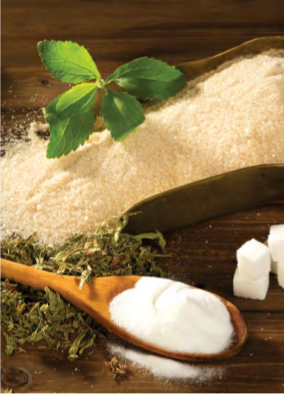 As if we didn’t need more reason to get exercising, now it seems our brain can benefit, too.
As if we didn’t need more reason to get exercising, now it seems our brain can benefit, too.
Researchers at The Jackson Laboratory in Maine, USA, studied the brains of middle-aged mice (12 months old) and the impacts of regular exercise on the deterioration of their brains as they aged. Once the mice reached old age (18 months old) the researchers found that running about two miles per night had helped to improve their motivation to engage in typical spontaneous behaviours that typically decline as a result of ageing. They also found that running regularly had helped to mitigate structural changes within the brain that make the blood-brain barrier leaky, resulting in vascular dysfunction and the inflammation of brain tissues. Exercise could therefore hold the potential for the prevention of conditions such as Alzheimer’s, caused in part by such inflammation. Who knew brain training required running shoes?
Petal Power
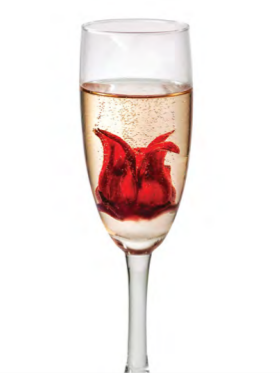 As most would agree, New Year celebrations wouldn’t have been complete without a glass of bubbly or three.
As most would agree, New Year celebrations wouldn’t have been complete without a glass of bubbly or three.
You may have noticed some people stepping up their champagne game by dropping hibiscus flowers into the fizz to watch them unfurl, completely unaware of the hidden health benefits this flower has to offer. Researchers recently looked at the effects had by feeding hibiscus flower extracts to animals on high-fat diets. The study revealed that this tropical flower holds the ability to reduce the symptoms of obesity, including loss of blood glucose regulation and an increase in fat cells. The scientists therefore concluded that hibiscus extract makes for an effective method of treatment for obesity. So, if you’re looking to shed any extra holiday weight, pop down to the health shop and grab some herbal tea infused with this fat-fighting flower.
Benefits of Walking Barefoot
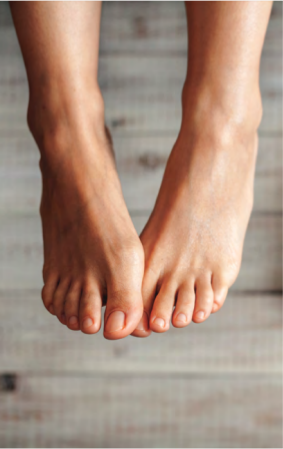 As the temperature drops and the winter wardrobes come into their own, one professor is stressing the importance of walking around without your beloved toe warmers.
As the temperature drops and the winter wardrobes come into their own, one professor is stressing the importance of walking around without your beloved toe warmers.
Patrick McKeon, a professor in Ithaca College’s School of Health Sciences and Human Performance, suggests that barefoot activities can significantly improve balance and posture, and can also help prevent common injuries like shin splints, stress fractures, and tendonitis in the Achilles tendon. He talks about the feedback cycle between the larger ‘extrinsic’ and smaller ‘intrinsic’ muscles of the foot, and the neural connections that send information from these muscles to the brain. When we wear shoes this cycle is broken, leading to overuse injuries that occur once the extrinsic muscles can no longer absorb the forces of activity. Still, a barefoot winter doesn’t sound all that appealing; maybe we’ll start this in the summer.
Tech Tattoos
 If you thought fitness trackers were smart, then this will cause your head to spin. Texas-based tech developers Chaotic Moon have just showcased their plans for ‘tech tattoos’ – taking the idea of wearable fitness trackers one giant step further.
If you thought fitness trackers were smart, then this will cause your head to spin. Texas-based tech developers Chaotic Moon have just showcased their plans for ‘tech tattoos’ – taking the idea of wearable fitness trackers one giant step further.
These biometric tattoos combine a micro-controller with LED lights and conductive inks to create a circuit board, sitting just on the surface of the wearer’s skin. Applied like a temporary tattoo, these can be used to monitor vital signs and data, including heart rate, body temperature and location, which can then be transferred wirelessly to a smartphone app or computer. Whilst these smart little stick-ons are set to be the next best in fitness tracking, they could also potentially be used for health monitoring, allowing doctors to remotely track the vital signs of their patients. Although still just in its prototype stages, we’re excited to see how this piece of fitness tech unfolds.
Mighty Morninga
 As the New Year Resolutions kick-in and health foods replace festive fancies, there might be one ingredient to keep an eye out for as you start your January cleanse.
As the New Year Resolutions kick-in and health foods replace festive fancies, there might be one ingredient to keep an eye out for as you start your January cleanse.
Moringa is being hailed as the new superfood, packing a wealth of body-blitzing and health-boosting benefits. Native to South Asia, this ‘miracle tree’ is loaded with vitamins and minerals, containing 25 times more iron than spinach and 17 times more calcium than milk. It’s also rich in anti-oxidants such as beta-carotene and vitamin C, and is known to reduce blood-sugar levels due to beneficial compounds such as isothiocyanates contained in it’s leaves. If that wasn’t enough to get you running to the nearest health food shop, Moringa has also been proven to maintain healthy cholesterol levels, and packs enough fibre to rid your body of the greasy leftovers. Who knew so much goodness could come from one tree?
Leg Training is Brain Training
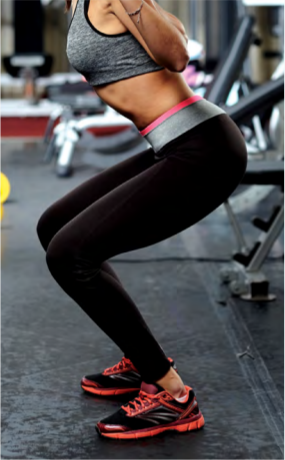 For those of us found guilty of skipping leg day, there’s now even more reason to dust off the squat rack and work on those pins.
For those of us found guilty of skipping leg day, there’s now even more reason to dust off the squat rack and work on those pins.
Researchers at King’s College London have recently discovered that muscle fitness as measured by leg strength is strongly connected with an improved rate of ageing in the brain. They studied a sample of 324 healthy female twins over a ten-year period, measuring thinking, learning and memory. The twin that had the better leg power at the start of the study sustained cognition better and had fewer brain changes associated with ageing. The scientists concluded that by adding or increasing simple habitual activities such as walking or standing, cognitive function can be preserved. So the better the leg strength, the better the brain. What more encouragement do you need to hit the gym on leg day?
You’re Sweet Enough
 Focus Performance, a Sussex-based company run by Martin Hayman and Scott Reid (pictured) and specialising in health and fitness, have launched a new line of supplements inspired by the passing of Scott’s mother.
Focus Performance, a Sussex-based company run by Martin Hayman and Scott Reid (pictured) and specialising in health and fitness, have launched a new line of supplements inspired by the passing of Scott’s mother.
Liz Reid lost a battle with cancer in 2013, and after researching the nutritional and dietary advice she received when she was ill, Scott and Martin are now keen to raise awareness about the benefits of eating healthily and staying active. They have subsequently created products that come free from added sugar and which cater for those fighting illness and obesity-related issues. They use naturally sourced Stevia extract; 300 times sweeter than sugar, but with no glycemic impact. Their flagship product, Hemp Pro, has also been designed to match the needs of all health and fitness fanatics, including vegans, paleo dieters and diabetics. This launch comes just as Brighton and Hove take the first city-wide initiative in the UK to become a Sugar Smart City, in an effort to help tackle obesity; a cause made easier thanks to these sugar-free supplements.
Benefits of Freekeh
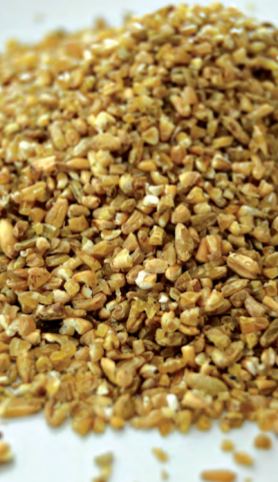 Getting bored of quinoa? For anyone looking to add a fresh new healthy staple to their diet, take a look at the recently popular ‘supergrain’ Freekeh.
Getting bored of quinoa? For anyone looking to add a fresh new healthy staple to their diet, take a look at the recently popular ‘supergrain’ Freekeh.
As an ancient grain, it has featured within Middle Eastern cuisine for centuries, and comes packed full of nutritional benefits. It’s low in fat and, serving for serving, has more protein and twice as much fibre as quinoa. It also ranks lower on the glycemic index, making it perfect for diabetics and those looking to keep their blood sugar levels steady. If that’s not enough to convert you, Freekeh is also high in essential vitamins and minerals, including iron, calcium and zinc, and acts like a prebiotic by promoting the growth of good probiotic bacteria in your digestive system. All in all, we don’t think you’ll find a better way to kick off your post-holiday-binge health plan than by putting this at the top of the shopping list.





















FOLLOW BESTFIT